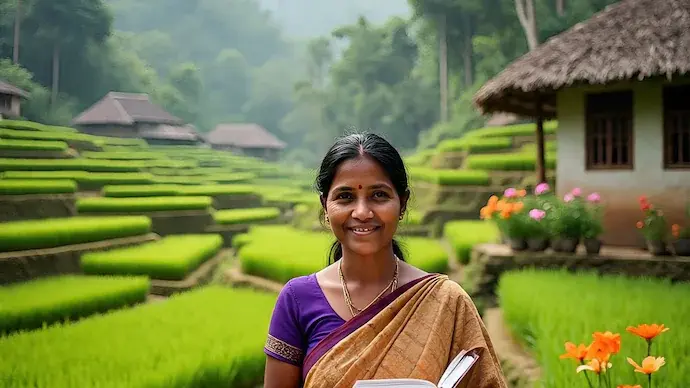Kaliachak, India’s ‘English teachers’ village turns language into its greatest export
By | Education | 17-Sep-2025 18:55:25

News Story
In Malda’s Kaliachak, where mango orchards stretch across the horizon and
litchis perfume the air, a quiet revolution has been underway for decades. This
is no ordinary Bengal village—it is India’s own “English
Teachers’ Village”, where nearly every household has turned the
mastery of a foreign tongue into both profession and passport.
Here, English is not just a subject taught in schools; it is a way of life. Teenagers rehearse grammar lessons for online students, grandparents offer conversational coaching to local kids, and families run small tutoring centers that pass down the craft of teaching from one generation to the next.
On Kaliachak’s streets, language institutes and
spoken English hubs sit alongside fruit stalls, and even in the bazaars, shopkeepers
slip English phrases into daily exchanges.
A
community built on words
The transformation of Kaliachak did not happen overnight. Over decades,
schools like Faizi Academy and Tarbiyah Public School, along with institutes
such as Phoenix Spoken English and Nirmal English Tutor Malda, created a
learning ecosystem that made English both accessible and aspirational. Local
colleges and teacher training institutes further sharpened the pipeline,
attracting students from neighboring districts eager to benefit from
Kaliachak’s reputation.
Teachers
without borders
What sets this village apart is not just how many English teachers it
produces, but how far their influence travels. Hundreds of Kaliachak’s
educators now teach across India’s metros—Delhi, Mumbai, Bengaluru—and beyond,
connecting with students globally through online platforms. Back home, families
run mini “training hubs,” ensuring that the next generation is ready to follow
in their footsteps.
For many, English teaching has opened doors to
scholarships, jobs, and opportunities abroad. Parents encourage children to
speak the language at home, and village celebrations often double as impromptu
speech contests. Here, English is not just taught—it is lived.
Beyond
classrooms and textbooks
Kaliachak’s success is not limited to education. The village’s economy
continues to thrive on agriculture, with mangoes, litchis, and silk weaving
sustaining livelihoods. Yet, the real identity of this community lies in its
unique export—teachers who carry words from Bengal’s heartland to the farthest
corners of the world.
If Madhpopatti in Uttar Pradesh is famed for its engineers and Maharashtra’s Gharivali for its doctors, Kaliachak proudly claims its place as the country’s village of English teachers.
In its dusty lanes and orchards, a quiet truth emerges: in rural India, ambition need not be bound by geography. With language as their tool, the people of Kaliachak have carved out a global footprint—proof that the world listens when a village finds its voice.